- Saturday, 17 January 2026
Budget to usher new phase of economic reform: Pun
Kathmandu, May 30: Finance Minister Barsaman Pun has made it clear that the budget for the next fiscal year has been brought keeping a new phase of economic reform at the centre.
Speaking at a press conference on Wednesday about the new budget he presented at the federal parliament on Tuesday, Finance Minister Pun said that the government had presented the budget accelerating economic activities by generating hopes among citizens and raise confidence of the private sector.
He said that the formation of the Economic Reform Commission which has been proposed in the budget would send a positive message.
In the budget of the next fiscal year 2024/25, he has announced the formation of a commission to improve the economic sector.
Pun said that the government would move forward in future economic development only by taking the private sector along with it.
He said that as the state alone could not spend on the development of infrastructure including roads, infrastructure, and bridges, it was trying to cooperate with the private sector, which contributes more than 75 per cent to the economy.
“Without partnership of the private sector, we cannot achieve targeted economic growth. So, the new budget has given priority to boost the morale of the private sector and involve them in infrastructure development,” he said.
The government has set a target of 6 per cent economic growth for the next fiscal year.
Balanced and realistic budget
He said that he had introduced various programmes through the budget to create jobs and stop youths from going abroad. Finance Minister Pun said that the budget was realistic and factual based on present context of the country’s economy.
Pun also said that the budget had focused on five objectives, priorities and strategies instead of distributive approaches to increase production, productivity and job creation.
“I am confident that the new budget will create hopes among the citizens and encourage the private sector to increase their investment. With the increment of investment from the private sector, the economy of the country will be vibrant,” he said.
The preliminary comments made by the opposition parties, private sector, economists and others have been positive and it will encourage us in its implementation, he said.
“With the implementation of the proposed budget, a new stage of economic reform programme will be implemented. I expect that the obstacles seen in the mobilisation of capital expenditure for a long time will be resolved and the public finance system will become more swift and the effectiveness of public expenditure will increase,” said FM Pun.
Finance Minister Pun said that a plan had been made in the budget to advance the next fiscal year as the departure year of the information technology decade with the goal of exporting Rs. 3,000 billion worth of goods and services in the information technology sector, and creating 500,000 direct and 1 million indirect jobs in 10 years.
The budget aims to make at least 100,000 returnees self-employed by running a returnee entrepreneurship programme to promote entrepreneurship through knowledge, skills and capital of citizens who have returned from foreign employment.
Adequate budget allocated for old projects
Finance Minister Pun said that the government had allocated sufficient budget for the ongoing projects with priority to complete them in time.
He clarified that he had left the tradition of bringing new projects every year and ignoring the old ones.
Ministry of Finance Pun said, “What we have tried in the budget is to introduce new plans and leave the old ones, and it was seen that the other (government) will not take ownership. To end that practice, we should keep enough budget for those projects which are about to be completed soon.”
He said the government had adequate budget to complete big projects like East-West Highway, Kathmandu-Tarai Expressway and Mid-Hill Highway and Madhan Bhandari Highway, among others. According to him, the budget had focused on the development of hydropower projects, especially reservoir ones, for energy security.
He said that the work on the 1,200 MW Budhigandaki Hydropower Project, which is in the process of construction, would be started at the earliest.
Tax rates revised based on facts
Responding to the queries regarding the increase in customs duty on sponge iron, Finance Minister Pun said that the deviation had been corrected.
He said that the tariffs had been altered by correcting the deviations in the past.
Pun made it clear that the tax on sponge iron had been increased to make the industry competitive and protecting all industries.
“Three slabs have been made and duty has been imposed on sponge iron and blades. We have worked according to our principles so that there is no deviation in sponge iron,” Finance Minister Pun said.
He said that as the first slab, a duty of 1 per cent was imposed on scrap, 2.5 per cent on sponge and 5 per cent on billet.
He said, “This is prepared by bringing all the raw materials and we have changed the tax according to the plan to keep the raw materials at the bottom, then the sponge iron and then the blade.”
The government has scrapped VAT on potatoes, onions and apples, imposed green tax on imports of petroleum products and coal and increased excise duty on liquor, beer, tobacco and cigarettes.
Budget within revised ceiling
Governor of Nepal Rastra Bank Maha Prasad Adhikari has said that the size of the budget brought by the government on Tuesday was within the new ceiling given by the National Resource Estimate Committee.
While answering questions from media persons regarding the budget size, he said that on the day before the budget speech, the resource estimation committee queried the ceiling of the budget.
Adhikari admitted that according to the law, the budget estimate made in February was reviewed based on the developments in the last four months.
He mentioned that the ceiling was reviewed according to the legal provisions on May 27 after extensive discussion in the resource committee.
He mentioned that the Ministry of Finance’s estimate of increase in foreign grants, especially as per the commitment of donor agencies, and the National Natural Resources and Fiscal Commission, showed the way to raise more internal debt than previously estimated, so the source was reviewed.
The government has presented a budget of Rs. 1,860.30 billion for the next fiscal year 2024/25.
Governor Adhikari said that the target of raising domestic debt is Rs. 330 billion estimated by the Natural Resources and Fiscal Commission.
He said that the budget for the next fiscal year was based on debt to GDP ratio, so the target of domestic debt is set in the ratio of GDP for the upcoming fiscal year.



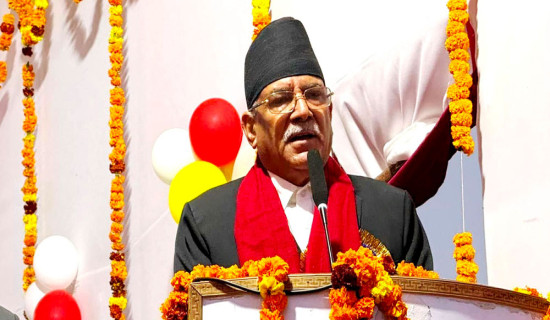


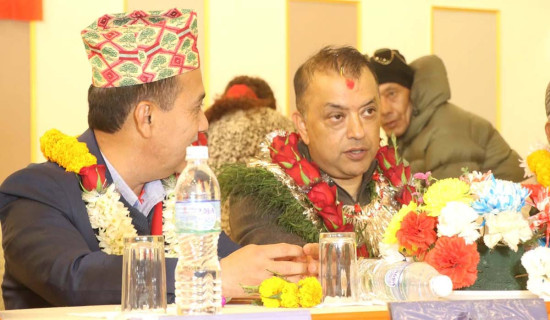




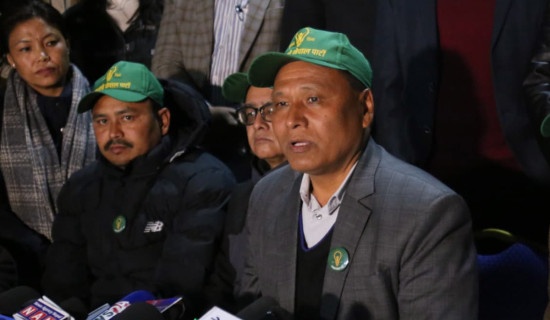
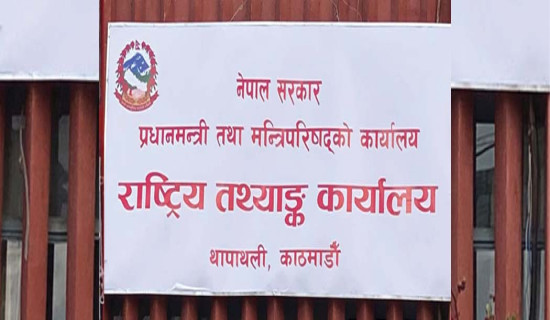

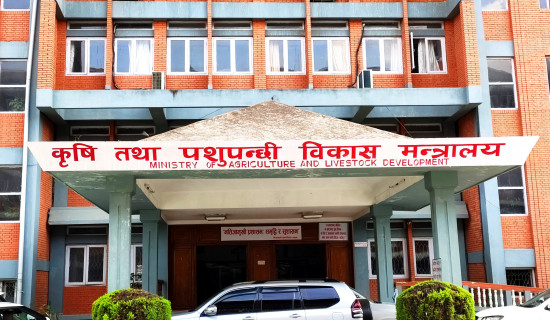

-(1)-original-thumb.jpg)